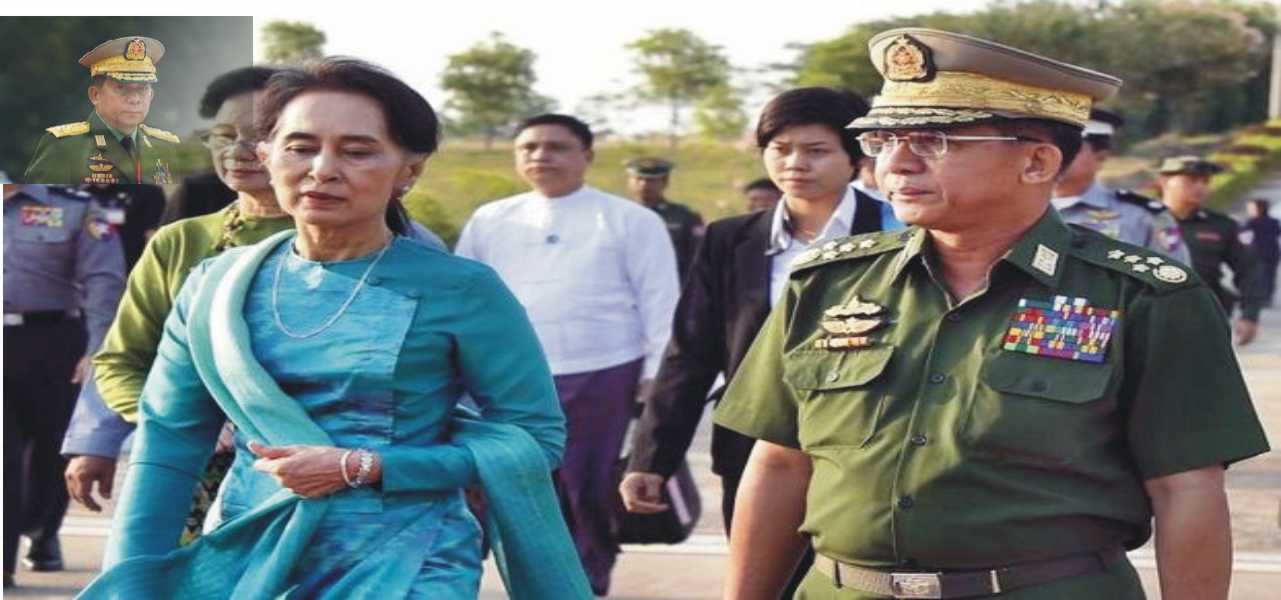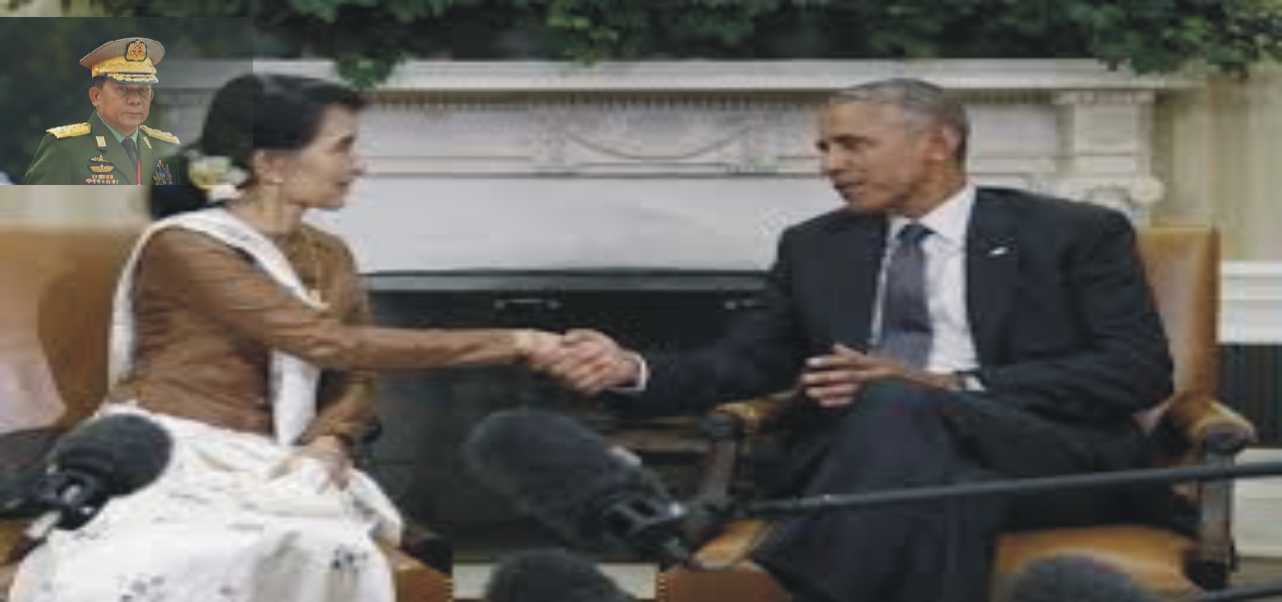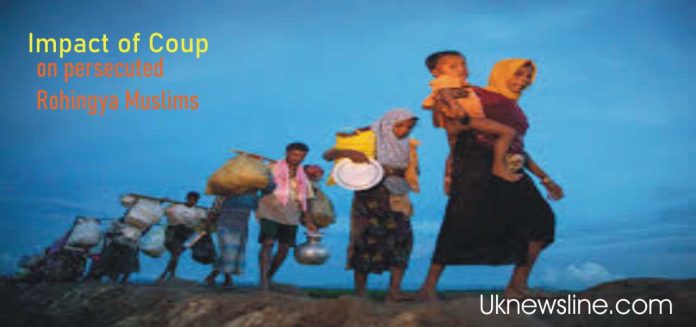Groups that campaigns for democracy and human rights in Southeast Asia, think the human rights situation may deteriorate in the coups subsequently. The army is now fully in charge of the government. Gen. Min Aung Hlaing, head of the Tatmadaw, has been presumably accused of genocide and war crimes.
The US sanctioned Hlaing in 2019 for human rights abuses against the Rohingya. The military is responsible for genocide against the Rohingya and other harsh human rights maltreatment against other ethnic minorities. Human rights did not improve during Suu Kyi’s leadership. Cruelties against the Rohingya and others happened during Myanmar’s play with democracy, during the tenure of Aung San Suu Kyi. Suu Kyi was Myanmar’s leader for democracy, the well known daughter of the man who helped wins the country’s independence.

For her function the military placed her under house arrest in the late 1980s until 2010. She won the Nobel Peace Prize in 1991 for her pro-democracy efforts, and as the country took measures toward democratization, she became its really civilian leader in 2015. Those steps were provisional however, and not complete. Once in her role, Suu Kyi deferred to the military, which retained substantial power under the new arrangement.
As the clampdown against the Rohingya accelerated, she received outside criticism for her quietness. She has stated to evidence of atrocities as not true and designed the crackdown as operations against terrorism. In 2019, she defended Myanmar against charges of genocide at the International Court of Justice in The Hague, Netherlands. Her refusal to criticize particularly the treatment of the Rohingya depicted the fault lines in Myanmar’s democratic testing.
Read More: The regional spider weaves its threads around the fledgling Libyan unit
Approximately 30 percent of Myanmar’s populations are ethnic minorities. , where the collaborators of those atrocities have taken as a power seize really raises the worries and the risks of further cruelties happening to groups like, specifically , the Rohingya Muslim. Activist groups have urged the Biden administration to label what’s happening to the Rohingya genocide.
Biden’s State Department is examining the label which advocates believe will help rally international force to the Rohingya cause. In the meantime the Biden administration has already officially declared the takeover in Myanmar a coup. The United States removed sanctions on Burma over the past decade based on advancement toward democracy.
The State Department said that the administration will review reemploying economic sanctions on Myanmar that had been removed in 2016 as Myanmar moved toward democratization. Experts stated that the military coup gives the new Biden administration and international partners a chance to put strong pressure on Myanmar, especially when it comes to its human rights maltreatment and atrocities against the Rohingya.

Countries condemned the violence against the Muslim Rohingya, and the United States used devices like targeted sanctions to penalize individual figures within Myanmar’s military. Some government official was unwilling to push very hard as they feared too much pressure might disturb Myanmar’s weak and not perfect, democracy.
The United Nations Security Council met to discuss the political situation in Myanmar. They called on the Security Council to impose sanctions, including on members of the military, or a global arms embargo. But the Security Council was not successful to even agree on a statement to condemn the coup. The military coup has been conducted by the same military who were accused of committing genocide or crimes against humanity. This freedom from punishment that has been given to this military must end. The world must hold answerable the military, not only for the coup, but particularly for the crimes of genocide.
Local militias destroyed through Rakhine state, burning villages, committing murder and mass rape as they went. More than a million Rohingya, a homeless Muslim minority in Myanmar, have fled violence in the Buddhist-majority country in sequence since the early 1990s.The latest crackdown, began on August. 25, 2017.
Subsequent to February 1 military coup in Myanmar, experts are worried the change in power will further endanger human rights protections, particularly for Rohingya Muslims — an ethnic minority that faced cruelly more amounting to genocide under the previous, and freely elected, administration. The man, who commanded genocidal acts against the Rohingya, and war crimes and crimes against humanity against other ethnic minorities, is now the only leader of the country as Min Aung Hlaing.
The military’s return to power displays a particular menace for Rohingya Muslims, whom the Buddhist nation of Myanmar has largely observed illegal immigrants since a 1982 law drive them of citizenship. In the ensuing years the military has completely deprived their rights, enabling widespread violence that both the U.N. and the United States have designated “ethnic cleansing.”
In 2018, Amnesty International deprived Suu Kyi of its 2009 Ambassador of Conscience Award, one of the organization’s highest honors, for misleading the human rights values she once advocated for. Her office has protected the security forces from accountability by denying allegations of human rights violations and by hindering international investigations into abuses, and her administration has actively arousing hostility against the Rohingya Muslim.
UNESCO, agrees that in the days and weeks to come, citizens and the international community should be worried, especially for ethnic minorities. The military has historically wicked groups like the Rohingya to play to nationalist sentiments. The level of atrocity-crimes risk has risen, and events need to be carefully tracked.

